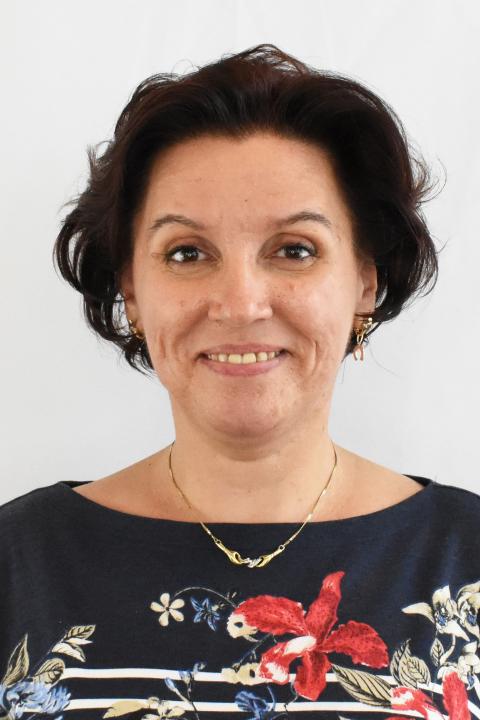Over time in the classroom, professors refine their teaching techniques and strategies, so their approach becomes a well-rehearsed presentation. But sometimes, they actually ŌĆ£flipŌĆØ their lesson plans after learning new, effective techniques that can further improve student success.
Sorina Ailiesei, Ph.D., Assistant Professor of English at ║┌┴Ž═°ŌĆÖs Twinsburg Academic Center, wanted to explore innovative learning tools that would help her with planning and time-saving strategies for teaching technical aspects of English Composition coursework.

This past summer, Dr. Ailiesei was accepted into the Innovation Intersession Program organized by the universityŌĆÖs Center for Teaching and Learning (CTL). This intense, hands-on program requires instructors to flip a segment of their class and to also evaluate their peers.
As a result, Dr. Ailiesei won Bronze and Silver Teaching Recognition Awards for Flipped Module on APA Citations from Kent StateŌĆÖs Center for Teaching and Learning.
The Bronze Award recognizes that she learned best practices for instruction and developed a plan to use them. She earned the Silver Award for designing and implementing her proposed teaching project. Each award reflects Dr. AilieseiŌĆÖs ability to adapt to new technologies for enhanced learning outcomes among her students.
ŌĆ» ŌĆ£It was such a rich learning experience at so many levels that I carried it on in my teaching and module design and in the public presentation of my project at the 28th University Teaching Council Celebration of College Teaching Conference,ŌĆØ she reports.
THE DETAILS
APA refers to the American Psychological Association citation and formatting style of formal writing that college-level students are required to follow when they write essays.
Dr. Ailiesei explains that English Composition courses require students to recognize, research, find, and integrate a variety of electronic, visual, professional, and traditional sources into an essay while following the conventions of APA format. For her part, teaching APA involves multiple lectures about source integration, in-text citations, and the References page.
The professor admits, ŌĆ£These lectures can sometimes be tedious, and while instructors are continuously looking for a variety of engaging ways to teach them, students still need to memorize the theoretical part. While I did not want to overwhelm my students with too much technical reading, I knew this is a task they can do by themselves.ŌĆØ
So she now provides students with an engaging approach to learning the technicalities (through recorded video lectures and slides) that synthesize all the information they need to grasp about APA formatting.
ŌĆ£After going through the materials, students now complete their pre-class activities and come prepared for their in-class activities to apply the concepts they learned and practice their newly acquired skills,ŌĆØ she explains.
Dr. Ailiesei has been teaching English for 20 years, focusing on first-year English Composition at Kent State Geauga and Twinsburg Academic Center for the past four years. She also teaches College Writing I & II as well as ŌĆ£Stretch,ŌĆØ a two-part introductory and next-level course in college writing that ŌĆ£stretchesŌĆØ over two semesters. Previously, she taught English as a Second Language (ESL) for four years at the Kent Campus.
She says that completing the CTL program ŌĆ£opened doors towards learning new tools that helped me design and implement a new project ŌĆö my first flipped module. This program introduced me to many teaching techniques and helped me choose what would be most effective in my class. I knew planning is pivotal to a successfully flipped class and, as much as we focus on planning each step of one activity, we may plan too much.ŌĆØ
Ultimately, Dr. AilieseiŌĆÖsŌĆ»flipped module on formatting the APA References page encourages her students in individual inquiry and engages them to better synthesize the information from their resource materials. It also helps them apply their knowledge so that they can create an accurate References list using a variety of electronic, visual, professional, and traditional sources.
While Dr. Ailiesei is proud of earning the Bronze and Silver teaching awards, she says, ŌĆ£For me, my studentsŌĆÖ success is the greatest reward. Student engagement in academic content can be difficult to achieve. The changes in perspective and the gains in the long term will prioritize and improve studentsŌĆÖ engagement and learning experience, enhancing their success.ŌĆØ
